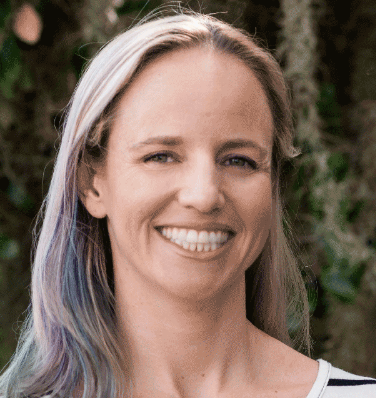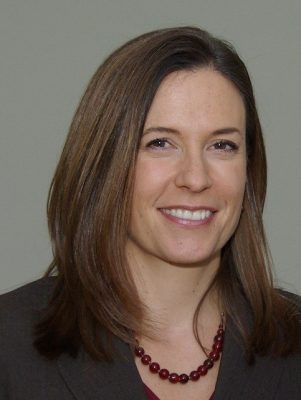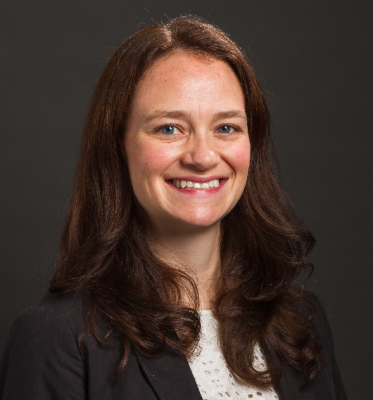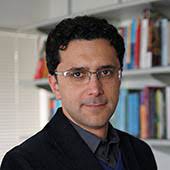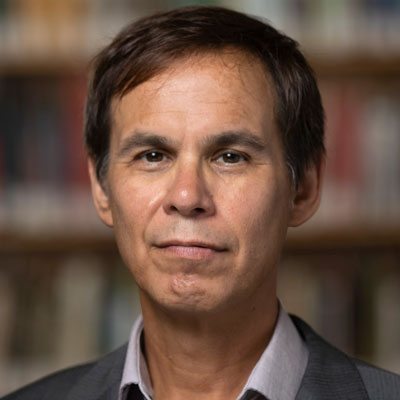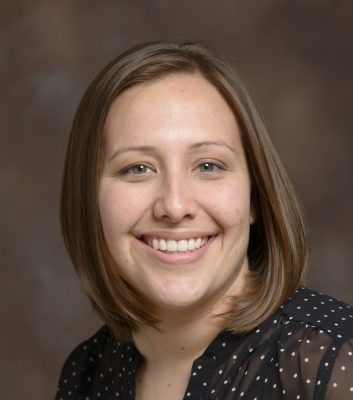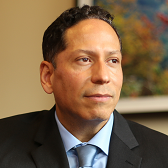
About
The InCHIP Lecture Series brings leaders in social and behavioral health research from diverse academic fields to the University of Connecticut. The series provides an invaluable forum for researchers – at InCHIP, throughout the UConn community and beyond – to learn about late-breaking findings, to identify emerging trends in health research, and to spark collaborations.
If not explictly stated otherwise, start_date/today and end_date/6 months are implied in the URL.
-
Mar5
-
Mar31
Attend a Lecture
- InCHIP Lectures are typically held on Thursdays at 12:30 PM Eastern.
- Lectures are webcast live via WebEx and InCHIP's YouTube Channel.
- Most InCHIP Lectures are recorded and posted to InCHIP's YouTube Channel archive.
- Please RSVP to each lecture to receive important details, updates, and virtual links.
- Inquiries: lectureseries@chip.uconn.edu
Spring 2026
March 5, 2026 | Jennifer D. Roberts, Dr.PH, MPH, University of Maryland
 March 5, 2026
March 5, 2026
Jennifer D. Roberts, Dr.PH, MPH, University of Maryland
Topic: Impact of Built, Social and Natural Environments on Public Health Outcomes of Marginalized Communities
Jennifer D. Roberts is a tenured Associate Professor in the Department of Kinesiology, School of Public Health at the University of Maryland College Park (UMD). Dr. Roberts is also the Founder and Director of the Public Health Outcomes and Effects of the Built Environment (PHOEBE) Laboratory as well as the Co-Founder and Co-Director of NatureRx@UMD,an initiative that emphasizes the green space benefits interspersed throughout and around the UMD campus and acknowledges the ancestral lands of the Piscataway People as well as the historical slave trade legacies of the UMD campus land. In recognition of her NatureRx@UMD accomplishments, Dr. Roberts was awarded an REI Cooperative Action Fund to create and establish the Wekesa Earth Center, a collaborative effort of scholarship and recognition across multiple disciplines to promote equity, reconciliation, and healing in nature. She serves as Executive Founding Director of the Wekesa Earth Center and oversees the four center arms: (1) research; (2) recognition; (3) programs; and (4) dissemination. Her scholarship focuses on the impact of built, social, and natural environments, including the institutional and structural inequities of these environments, on the public health outcomes of marginalized communities. More specifically, much of her research has explored the dynamic relationship between environmental, social, and cultural drivers of physical activity or active living and using empirical evidence of this relationship to infer complex health outcome patterns and disparities among adults and children.
April 16, 2026 | Sarah McMahon M.S.W., Ph.D., Rutgers University | Sexual Assault Awareness Month
 In Recognition of Sexual Assault Awareness Month
In Recognition of Sexual Assault Awareness Month
April 16, 2026
Sarah McMahon M.S.W., Ph.D., Rutgers University
Topic: Using Ecological and Social-justice Based Frameworks to Examine the Prevention of Interpersonal Violence
Sarah McMahon is a Professor at the Rutgers University School of Social Work and Director for the School’s Center for Research on Ending Violence. She also serves as the Special Advisor on Sexual Misconduct Prevention and Response in the Office of the President. Her research focuses on using ecological, social-justice based frameworks to examine the prevention of interpersonal violence, as well as mechanisms for engaging individuals, communities and institutions in social change. Dr. McMahon’s work also explores the ways in which participatory, collaborative processes can enhance the translation of research to practice in community settings including workplaces. Dr. McMahon has conducted several studies on the role of bystander intervention as a tool for preventing and responding to interpersonal violence, across various settings including academia and workplaces.
Previous Lectures
Completed Lectures 2025-2026
InCHIP's completed lectures will be posted here. Watch recorded lectures on InCHIP's YouTube page.

September 11, 2025
Shadi Izadidehkordi, PharmD, University of Connecticut
"Evaluating Cost-Effectiveness of Healthcare Interventions, a Dynamic Model to Capture Cost-Effectiveness of a Bio-behavioral PrEP focused HIV Preventive Intervention"
Shadi Izadidehkordi, PharmD is a licensed community pharmacist and postdoctoral research associate in the University of Connecticut's Department of Allied Health Sciences. Her research expertise is in the areas of pharmaceutical outcomes research, including pharmacoeconomic, cost-effectiveness analysis, and economic evaluation of pharmaceutical products. Dr. Izadidehkordi's research interests also include Health Economics and Outcomes Research (HEOR), pharmaceutical/healthcare modeling research, applying real-world data to clinical trials for pharmacoeconomic/pharmacoepidemiology model development, and predictive modeling of healthcare interventions.
 In Recognition of Mental Health Awareness Month
In Recognition of Mental Health Awareness Month
October 16, 2025
Samantha I. Reaves, Ph.D., University of Maryland School of Medicine; National Center for School Mental Health
"Components of School Mental Health Systems, how they Support Students, and Strategies for how Teams can Assess and Improve Their Systems"
Dr. Reaves is an Assistant Professor at the National Center for School Mental Health. She is an experienced school mental health clinician and researcher who often provides technical assistance to school, district, and state leaders around their school mental health quality improvement efforts. Her personal research interests lie at the intersection of mental health and education. She often investigates how school or family factors influence student outcomes in underserved communities. As a clinical-community psychologist, she believes great prevention work can be done and realizes the importance of strengthening the systems children are nested in to promote well-being. She is committed to supporting schools, at multiple levels, to improve policies and procedures around student socioemotional functioning.
 November 6, 2025
November 6, 2025
Colleen Vesely, Ph.D. George Mason University
"Family-centered Participatory Action Research (FCPAR) towards Early Care and Education Systems Change for Equity"
Colleen K. Vesely, Ph.D., is an associate professor and graduate Academic Program Coordinator (APC) of Inclusive Early Childhood Education in the College of Education and Human Development (CEHD) at George Mason University in Fairfax, Virginia. Dr. Vesely’s scholarship uses Community-based Participatory Action Research (CBPAR) approaches to transform systems of oppression and injustice within early care and education to create equity. Specifically, Dr. Vesely examines the experiences of young children and families who experience structural marginalization to understand how they navigate early care and education systems and spaces while negotiating parenthood in the U.S. She studies family partnership and family-led systems change, particularly among families from diverse racial, ethnic, socioeconomic, linguistic, and ability backgrounds. Dr. Vesely also leads work focused on developing preservice early childhood education teachers' knowledge, skills, and abilities for implementing antiracist pedagogy in their early childhood classrooms and programs. Dr. Vesely also contributed to creating tools to examine college-level equity data specific to race and gender. Dr. Vesely facilitated the Child Care and Early Education Research and Policy Consortium (within the Administration for Children and Families, U.S. Department of Health and Human Services) 2024-25 Research Collaborative on Reimagining Family Partnership for Equity in Child Care and Early Education. Dr. Vesely’s work has been funded by the Spencer Foundation, Fairfax County Office for Children, Bruhn Morris Family Foundation, Office of Planning, Research, and Evaluation in the U.S. Department of Health and Human Services, and the Bernard van Leer Foundation.
 November 20, 2025
November 20, 2025
Claire Wardle, Ph.D., Cornell University
“Understanding and Responding to Misinformation through the Lens of Community Information Needs and Participatory Information Environments”
Claire Wardle is an associate professor in the Department of Communication at Cornell University. Her research focuses on user-generated content, verification and misinformation. She has spent the past two decades working across sectors, including as an academic at different universities in the U.K. and the U.S., working with different international news organizations as well as the United Nations, and advising different policy-makers. She also co-founded the non-profit First Draft and the Information Futures Lab at Brown University. She holds an M.A. in Political Science and a Ph.D. in Communication from the University of Pennsylvania.
Her research focuses on the contemporary information ecosystem, and the vulnerabilities and opportunities offered through participatory community spaces, both on and offline. Her current work is attempting to understand how more effective responses to community information needs by and with communities might create resilience against misinformation.
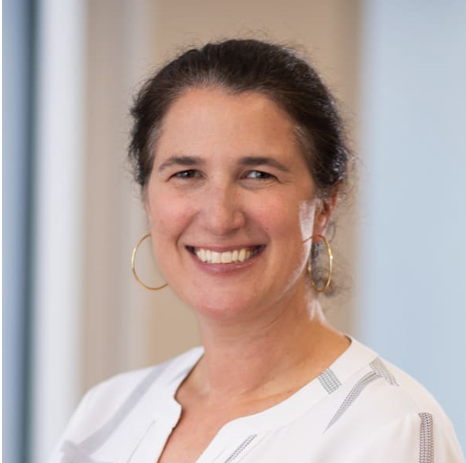 In Recognition of World AIDS Day
In Recognition of World AIDS Day
December 11, 2025
Jaimie Meyer, MD, MS, FACP, Yale School of Medicine
Topic: Health Equity and Social Justice Approaches to the Prevention and Treatment of HIV and Other Infectious Diseases
Dr. Meyer is an Associate Professor of Medicine and Public Health at Yale, and the Director of the Infectious Disease fellowship training program. She is a practicing physician who is board-certified in Internal Medicine, Infectious Diseases, and Addiction Medicine. Her NIH-funded clinical research lab focuses on HIV prevention and treatment for women, addressing social and structural determinants of health. Ongoing projects involve HIV prevention and treatment interventions for women involved in criminal legal systems, attending to reproductive health needs, intimate partner violence, substance use disorders and homelessness. Her clinical work and research are motivated by her experience working as an HIV care provider at the only women’s prison and jail in Connecticut.
 February 5, 2026
February 5, 2026
Abby King, Ph.D., Stanford University
"Forging Pathways for Leveraging the Power of People & Technologies in Promoting Human & Planetary Health"
Abby King, PhD, is Professor of Epidemiology & Population Health and of Medicine at the Stanford Prevention Research Center. A clinical psychologist by training, her postdoctoral training has focused on community-based chronic disease prevention and control. She is an internationally respected scientist and award-winning teacher and mentor who has developed, evaluated, and disseminated creative solutions to major public health challenges related to prevention of chronic disease and promotion of health equity in the U.S. and globally.
Dr. King leads an interdisciplinary research team aimed at creating cutting-edge behavioral and technology-enabled programs promoting the healthy lifestyles and environments necessary for living long and productive lives. Her team’s borderless health promotion solutions seek to create health programs that break down barriers related to education, literacy, language, and computer knowledge and access to foster health equity for all.
Completed Lectures 2024-2025
InCHIP's Completed Lectures for the 2024-2025 Academic Year will be posted here. Watch recorded lectures on InCHIP's YouTube page.

Heide Castañeda, Ph.D., University of South Florida
Topic: Health Care Access for Immigrant Populations
September 12, 2024
Heide Castañeda is a Professor of Anthropology at the University of South Florida. Her research areas include critical border studies, political and legal anthropology, medical anthropology, migration, migrant health, citizenship, focusing on the U.S./Mexico border, Mexico, Germany, and Morocco.
She is the author of Borders of Belonging: Struggle and Solidarity in Mixed-Status Immigrant Families (Stanford University Press, 2019) and co-editor of Unequal Coverage: The Experience of Health Care Reform in the United States (NYU Press, 2018). Her latest book is Migration and Health: Critical Perspectives (Routledge, 2023).
Dr. Castañeda has also published dozens of research articles on migration and health care access for immigrant populations. Her work has been funded by the National Science Foundation, National Institutes of Health, the Fulbright Program, the German Academic Exchange Service (DAAD), and the Wenner-Gren Foundation for Anthropological Research.
 In Recognition of World Mental Health Month
In Recognition of World Mental Health Month
Shalini Sivathasan, Ph.D., Boston College
"Reimagining Mental Health Care for Autistic Individuals: Social Justice Approaches for Research and Clinical Practice"
October 10, 2024
Dr. Shalini Sivathasan (she/her) is an Assistant Professor of Counseling Psychology in the Lynch School of Education and Human Development at Boston College. Her research interests broadly center around improving behavioral health outcomes and access to mental healthcare among people with multiple marginalized identities (e.g., autistic and neurodivergent individuals, racial/ethnic minorities, LGBTQIA+). As the director of the Intersections Lab at BC, she and her students aim to leverage expert knowledge through collaborations with people with lived experiences, families, community partners, and mental health professionals, ultimately with the goal of reducing disparities and developing accessible interventions for marginalized children and adults.


Janine M. Simmons, M.D., Ph.D.
Deputy Director, Office of Behavioral and Social Sciences Research, NIH
“Charting a Path toward Emotional Well-Being: Perspectives from the NIH Office of Behavioral and Social Sciences Research”
October 24, 2024
Janine M. Simmons, M.D., Ph.D. joined OBSSR as the Deputy Director in January 2024. In this role, she supports the OBSSR Director and staff in strategic planning, developing scientific initiatives, ensuring strong communication with internal and external stakeholders, and implementing plans to advance the coordination, integration, and impact of behavioral and social sciences research.
Dr. Simmons comes to OBSSR by way of the National Institute of Mental Health (NIMH) and the National Institute on Aging (NIA). At NIMH, Dr. Simmons ran the Social and Affective Neuroscience Program within the Division of Neuroscience and Basic Behavioral Science, served as a subject matter expert on Social Processes for NIMH’s Research Domain Criteria (RDoC) program, and originated proposals for the BRAIN initiative’s Brain-Behavior Quantification and Synchronization initiative. At NIA, Dr. Simmons was Chief of the Individual Behavioral Processes Branch within the Division of Behavioral and Social Research and served as a Program Officer or Project Scientist for NIA’s Stress Measurement Network, Emotional Well-Being Networks, Telomere Research Network, and the Science of Behavior Change Coordinating Center. Dr. Simmons has a long-standing relationship with OBSSR, including active participation in OppNet since 2010 and co-chairing the OBSSR Coordinating Committee’s Behavioral Ontology Development Working Group since 2015.
Dr. Simmons attended Yale University, obtained an M.D., Ph.D. in Neurosciences from the UCLA School of Medicine, trained in General & Adult Psychiatry at Western Psychiatric Institute & Clinic, and completed a post-doctoral fellowship within the NIMH Intramural Program. Her graduate and post-doctoral research focused on neural circuits underlying motivation and reward processing.
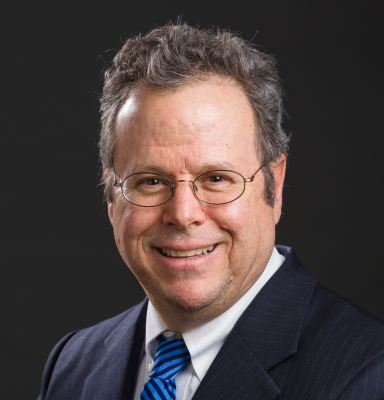 Rafael Pérez-Escamilla, Ph.D., Yale School of Public Health
Rafael Pérez-Escamilla, Ph.D., Yale School of Public Health
"The Impact of Neocolonialism on Global, Maternal, and Child Health"
November 14, 2024
Rafael Pérez-Escamilla, Ph.D., is Professor of Public Health, and Director of the Office of Public Health Practice, the Global Health Concentration, and the Maternal Child Health Promotion track at the Yale School of Public Health. He is the PI of the Yale-Griffin CDC Prevention Research Center (PRC). His global public health nutrition and food security research program, supported with over $90 million in extramural funds, has contributed to improvements in breastfeeding and other maternal, infant and young child nutrition outcomes, iron deficiency anemia among infants, household food security, and early childhood development. He has co-led innovative mixed-methods implementation studies assessing the impact of community health worker person centered interventions on breastfeeding, type-2 diabetes, post-partum hypertension and mental health outcomes among vulnerable communities. He has published over 350 research articles. He is a member of the U.S. National Academy of Medicine (elected in 2019).
 In Recognition of World AIDS Day
In Recognition of World AIDS Day
Lisa B. Hightow-Weidman, MD, MPH, Florida State University
Topic: Technology-based HIV Prevention and Treatment Interventions for Adolescents and Young Adults
December 5, 2024
Lisa B. Hightow-Weidman, MD, MPH is a Distinguished and Endowed McKenzie Professor in the College of Nursing at the Florida State University (FSU). She is the founding director of the Institute on Digital Health and Innovation at FSU.
Dr. Hightow-Weidman is an expert in the development, implementation and evaluation of digital health interventions (DHIs) to address the HIV Care Continuum for adolescents and young adults, particularly among sexual and gender minority populations. Her research interests include technology-based HIV prevention and treatment interventions for adolescents and emerging adults, specifically interventions that incorporate game-based elements, self-monitoring and tracking and provision of social support to increase engagement and impact health behavior. She has developed technology-based interventions that aim to increase uptake and adherence to biomedical prevention and treatment, to increase HIV diagnosis, linkage and retention in care and to ameliorate stigma and increase resilience. She has published nearly 200 peer-reviewed articles on these topics and has a proven track record of successful funding from the National Institutes of Health, HIV/AIDS Bureau and the Centers for Disease Control and Prevention.


Laura Kubzansky, MPH, Ph.D., Harvard T.H. Chan School of Public Health
"Aging with Well-Being: Considering Psychosocial Pathways"
February 6, 2025
Dr. Laura Kubzansky is Professor of Social and Behavioral Sciences at the Harvard T.H. Chan School of Public Health. Dr. Kubzansky has published extensively on the role of psychological and social factors in health. Other research projects and interests include a) biological mechanisms linking emotions, social relationships, and health; b) relationships between early childhood environments, resilience, and healthy aging; c) the role of emotional well-being in individual and societal health, and c) how psychosocial stress or assets may interact with toxic environmental exposures (e.g., lead, air pollution) to influence health. She is a fellow in several professional associations, has served as an expert advisor to numerous panels at foundations and health agencies, and is a principal investigator or co-investigator on a wide variety of grants.
 In Recognition of Heart Health Month
In Recognition of Heart Health Month
Kenneth E. Freedland, Ph.D., Washington University School of Medicine in St. Louis
"Treatment of Depression in Patients with Heart Disease"
February 27, 2025
Dr. Freedland is a Professor of Psychiatry and Psychology at Washington University School of Medicine in St. Louis. Most of his research has focused on depression in patients with heart failure or coronary heart disease. He has also conducted studies of other psychiatric comorbidities, behavioral problems such as poor self-care, and social determinants of health in patients with heart failure. He has been the principal investigator or a co-investigator on both single-site and multicenter trials of interventions for depression in cardiac patients and has served on clinical trial review committees for the National Heart, Lung, and Blood Institute (NHLBI) and the Patient-Centered Outcomes Research Institute (PCORI). He also has expertise in behavioral trial methodology. Dr. Freedland is the founder of the Society of Behavioral Medicine’s Cardiovascular Disease Special Interest Group and of the Behavioral Medicine Research Council, and a fellow of multiple organizations including the Academy of Behavioral Medicine Research. He was the Program Director of the annual NIH Summer Institute on Randomized Behavioral Clinical Trials from 2020 to 2024. He has been a member of the Summer Institute faculty since 2007 and the faculty of the NIH-funded ORBIT Institute on Developing Behavioral Treatments to Improve Health since 2022. He has also served as an Associate Editor of Psychosomatic Medicine and Editor-in-Chief of Health Psychology.
 Christina H. Fuller, Sc.D., University of Georgia
Christina H. Fuller, Sc.D., University of Georgia
"A Natural Solution to Disparities in Air Pollution Exposures"
March 13, 2025
Christina H. Fuller is an Associate Professor in the University of Georgia College of Engineering. She earned master’s and doctoral degrees in environmental health from the Harvard T.H. Chan School of Public Health and a bachelor’s degree in environmental engineering from Northwestern University. Dr. Fuller conducts research on environmental health and justice. She has expertise in exposure science and epidemiology, which she uses to investigate air pollution exposure, pollution reduction strategies, health disparities and social-environmental interactions.
 In Recognition of Sexual Assault Awareness Month
In Recognition of Sexual Assault Awareness Month
Kristin M. Anders, Ph.D., Kansas State University
"Risk Factors for Violence in Sexual and Romantic Relationships across Adolescence and Emerging Adulthood: A Call for Research and Action"
April 3, 2025
Dr. Kristin M. Anders’s (she/her) research program focuses on the conceptualization of and communication around healthy and unhealthy sexual development in the U.S. Specifically, much of her work focuses on how we capture and communicate about sexuality within relationships--ranging from communication by care providers (e.g., parent-child, healthcare, early childhood educators) to within romantic relationships. Within this research, Kristin studies the use of violence in sexual and romantic relationships across adolescence and emerging adulthood. Specifically, her work has examined risk factors associated with the engagement in sexual violence on college campuses and sexual teen dating violence. She aims to use this research to better inform sexuality research, education, and violence prevention programs, particularly in high schools and colleges.
Kristin earned her Ph.D. in Child and Family Studies from the University of Tennessee-Knoxville in 2017. She is currently an Assistant Professor in the Department of Applied Human Sciences at Kansas State University, wherein she is a faculty with both the Human Development and Family Science undergraduate program and Prevention Science graduate program. She currently leads the Sexual Health and Assault Research and Education (SHARE) team and co-leads the Identity Over the Lifespan (IDOL) team with Dr. Anthony Ferraro. Kristin also continues to work with Drs. Michelle Toews and Chelsea Spencer on meta-analytic reviews of sexual and dating violence during the teen and college years which will be highlighted within this presentation.
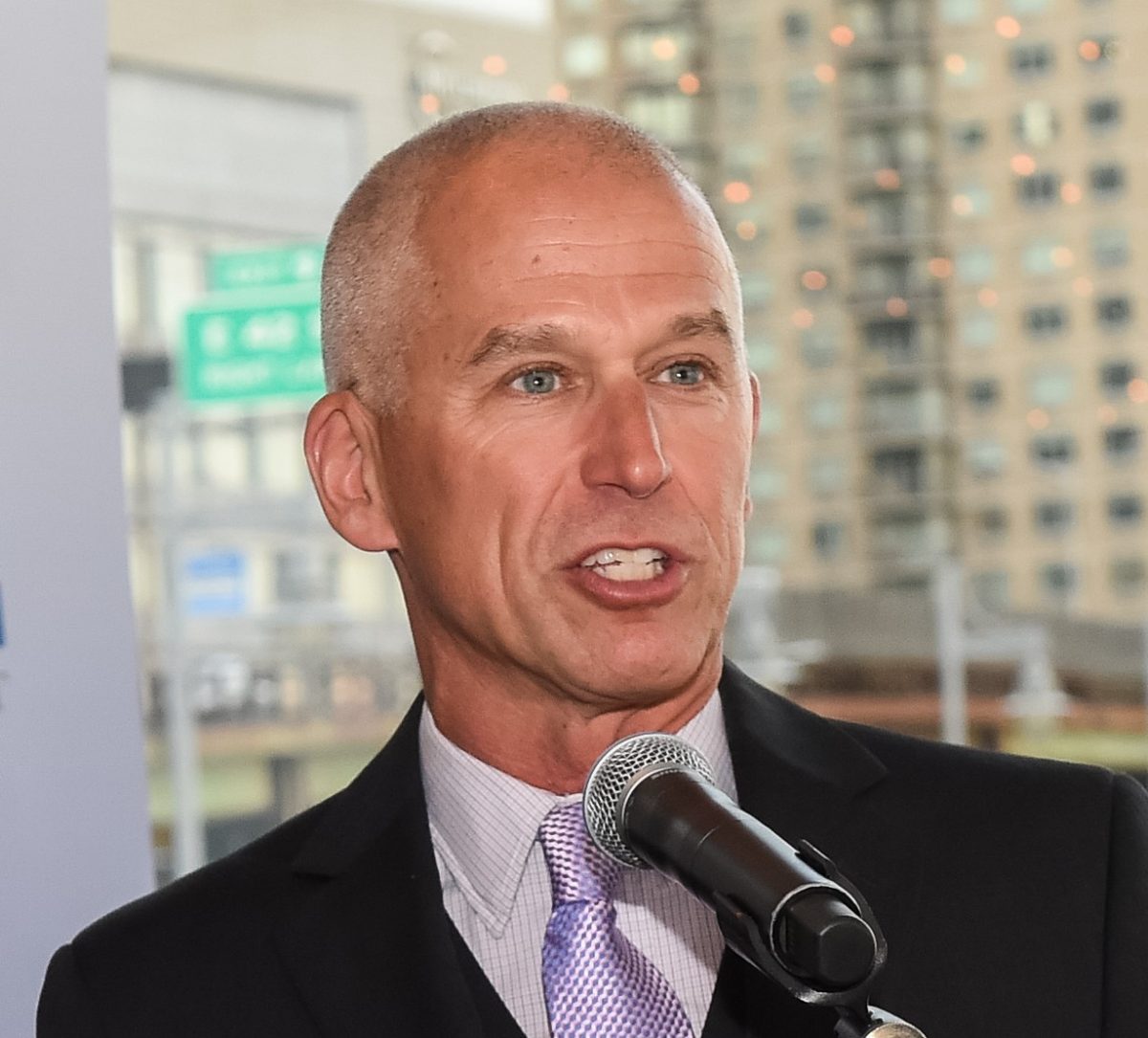
Douglas J. Casa, PhD, ATC, FACSM, FNATA, FNAK, UConn
"Exertional Heat Stroke: A Public Health Crisis in a Warming World - Exploring Current Efforts to Mitigate the Risk"
April 17, 2025
Dr. Casa is the CEO of the Korey Stringer Institute (since it was founded in 2010) and is a Board of Trustees Distinguished Professor of Kinesiology (began at UCONN in 1999) at the University of Connecticut. Dr. Casa was inducted into the NATA Hall of Fame in June 2024. The mission of the KSI (ksi.uconn.edu) is to provide research, education, advocacy, and consultation, to maximize performance, optimize safety, and prevent sudden death for the athlete, warfighter, and laborer. Additionally, he is the editor of a book titled: Preventing Sudden Death in Sport and Physical Activity (2nd edition, 2017), published by Jones & Bartlett in cooperation with the American College of Sports Medicine. Another recent book titled Sports and Physical Activity in the heat: Maximizing Performance and Safety was published by Springer in the winter of 2018. His latest book- Elite Soccer Players: Maximizing Performance and Safety was published by Routledge in 2020. Dr. Casa has published about 400 peer- reviewed publications/book chapters and presented more than 600 times on subjects related to maximizing performance in the heat, exertional heat stroke, heat-related illnesses, preventing sudden death in sport, and hydration. He has an H-index of 66. As a licensed athletic trainer Dr. Casa has successfully treated 405 cases of exertional heat stroke (with 0 fatalities). In addition, from 2018 through 2021 he served on the International Olympic Committee Adverse Weather Impact Expert Group for the Olympic Games Tokyo 2020 (took place in 2021) that focused on the extreme heat anticipated for these games.
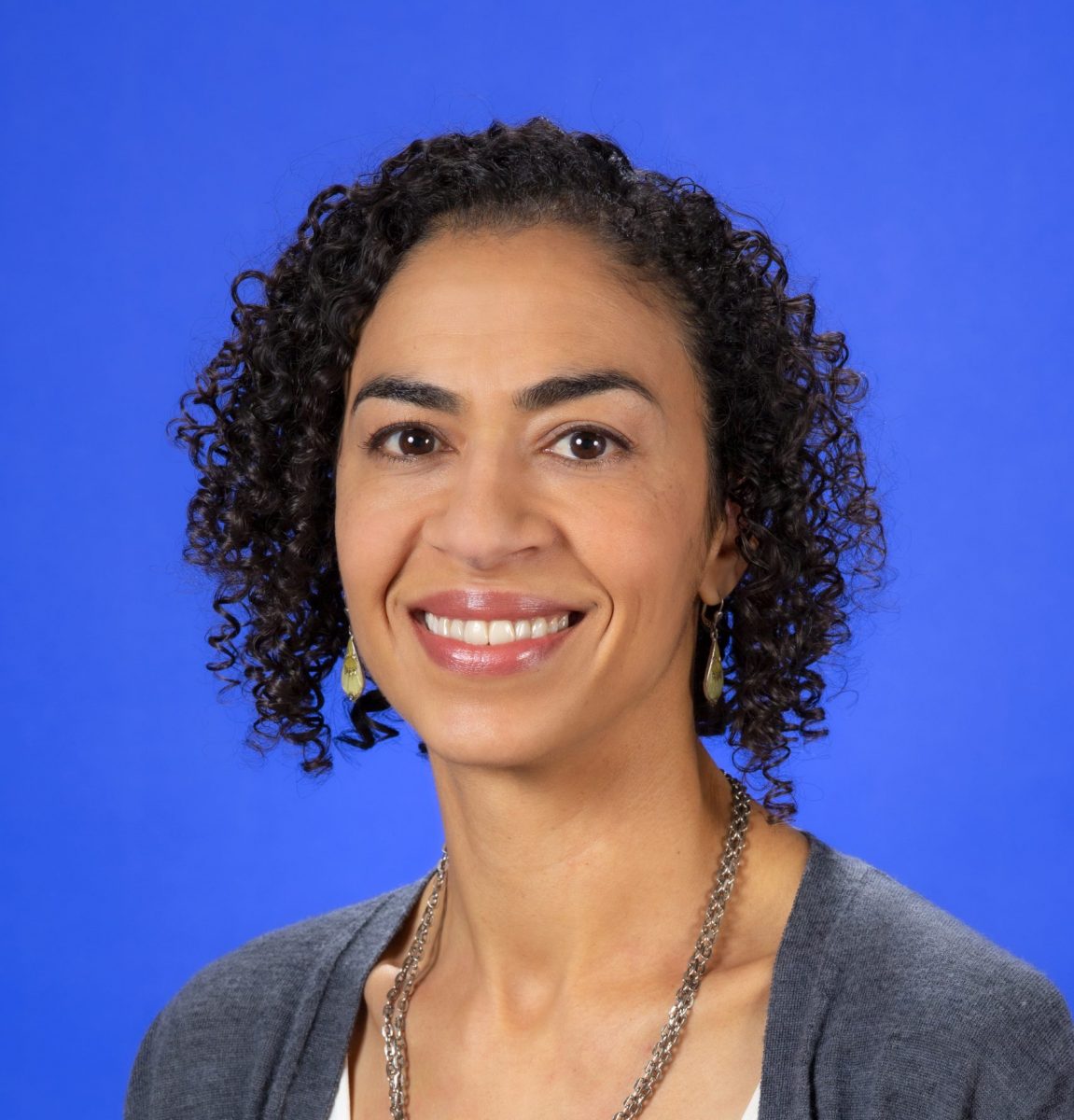
Susan D. Brown, Ph.D., FSBM, FABMR, University of California, Davis
“Clinical Trial Participation: Maximizing Generalizability and Public Health Impact”
May 1, 2025
*This recording is not currently available.
Dr. Susan D. Brown is an Associate Professor of Internal Medicine at the University of California, Davis School of Medicine. Her research focuses on behavioral interventions for diabetes and cardiovascular disease prevention in at-risk maternal and adult populations. Her work targets patient engagement in preventive health behaviors and preventive healthcare services; and engagement in clinical research itself, such as strategies to improve representation in randomized clinical trials. Dr. Brown leads several programs to promote high-quality mentoring of research trainees across career levels, including as Associate Director of the Mentoring Academy for Research Excellence in the UC Davis Clinical and Translational Science Center. Dr. Brown serves on the editorial board of the journal Diabetes Care, and is an elected Fellow of both the Society of Behavioral Medicine and the Academy of Behavioral Medicine Research.
Completed Lectures 2023-2024
InCHIP's Completed Lectures for the 2023-2024 Academic Year will be posted here. Watch recorded lectures on InCHIP's YouTube page.
Sarah D. Lynne, Ph.D., University of Florida
"'It’s not the Destination, it’s the Journey': Ecologically Informed Pathways to Health and Well-being"
September 21, 2023
Sarah D. Lynne is an associate professor in the Department of Family, Youth and Community Sciences at the University of Florida. She is a former SRCD policy fellow who worked at the National Institute on Drug Abuse (NIDA). Her experience at NIDA provided her with a unique perspective regarding the interplay between science and policy. A primary goal of her research is to promote positive health and well-being and reduce disparities for marginalized populations using the tools of developmental psychology and prevention science. Applying advanced quantitative statistical methods, Dr. Lynne conducts developmental research on pathways to substance use and related mental, physical, and behavioral health problems complimenting original data collection with evaluations of large archival longitudinal datasets. She takes an ecological perspective, focusing on the interplay between individual characteristics, interpersonal relationships, and context across childhood and adolescence, with primary expertise in the biopsychosocial changes of adolescence.
In Recognition of World Mental Health Day
Theresa S. Betancourt, ScD, MA, Boston College
"The Mental Health of Children Affected by Armed Conflict: A Call to Action"
October 12, 2023
Theresa S. Betancourt is the inaugural Salem Professor in Global Practice at the Boston College School of Social Work and Director of the Research Program on Children and Adversity (RPCA). Her primary research interest is to understand the protective processes that contribute to risk and resilience in the mental health and development of children and adolescents facing adversity in a variety of cultures and settings. Dr. Betancourt has led initiatives to adapt and test evidence-based behavioral and parenting interventions for children and families facing adversity; she additionally focuses on strategies for scaling out these interventions using implementation science approaches. She is Principal Investigator of an intergenerational study of war/prospective longitudinal study of war-affected youth in Sierra Leone, a scale-up Family-Strengthening Intervention for children and families in Rwanda, and community-based participatory research on prevention of emotional and behavioral problems in refugee children and adolescents resettled in the U.S.
M3EWB Talk @ InCHIP Lecture Series
Sara Lazar, Ph.D. Harvard University, Lazar Lab for Meditation Research, Massachusetts General Hospital
"Examining the Neural Mechanisms Underlying the Beneficial Effects of Yoga and Meditation"
November 16, 2023
I am an Associate Professor in the Psychiatry Department at Massachusetts General Hospital and Harvard Medical School. The focus of my research is to elucidate neural mechanisms underlying the beneficial effects of yoga and meditation, both in clinical settings and in healthy individuals. We are particularly interested in how meditative practices change the flow of information within and between the major brain networks during emotionally challenging situations. My research has been covered by numerous news outlets including The New York Times, USA Today, CNN, and WebMD.
 In Recognition of World AIDS Day
In Recognition of World AIDS Day
Leigh E. Szucs, Ph.D., CHES, Division of Adolescent and School Health (DASH), U.S. Centers for Disease Control and Prevention
"Promoting Adolescent Sexual Health and the Prevention of HIV/STI and Unintended Pregnancy: Implications for School Research and Practice"
November 30, 2023
Leigh Szucs, Ph.D., CHES is a Senior Health Scientist in the Division of Adolescent and School Health (DASH) at the U.S Centers for Disease Control and Prevention. Her research focuses on evaluating school-based health and sexual health education programs aimed preventing STIs, including HIV, and unintended pregnancy among adolescents. Through this research, Leigh also provides technical and capability building assistance to school districts across the United States using evidence-informed strategies shown to improve adolescent sexual and reproductive health outcomes, in addition to promoting key protective factors that support health and well-being. Leigh earned a Master of Education in Health Education at Texas State University and PhD in Health Education at Texas A&M University.
Co-sponsored by: M3EWB & Collaboratory on School and Child Health
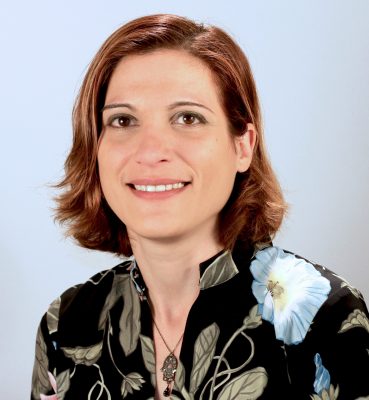 Inbal Billie Nahum-Shani, Ph.D.
Inbal Billie Nahum-Shani, Ph.D.
Director, Data Science for Dynamic Decision-making Center (d3c)
Professor, Institute for Social Research, University of Michigan
"Optimizing the Integration Between Digital and Human-delivered Intervention Components: The Hybrid Experimental Design"
January 19, 2024
Dr. Nahum-Shani’s primary research interest is harnessing adaptive interventions to transform health care. Adaptive interventions address the changing needs of individuals by modifying their treatment based on dynamic information about their state and progress. An important focus of her work is the Just-In-Time Adaptive Intervention (JITAI), a special type of adaptive intervention that leverages powerful mobile and sensing technologies to adapt the delivery of support in real-world settings—in near real-time. Her work is highly multidisciplinary, spanning behavioral health and applied psychology, while also being tightly integrated with advanced research methodology. She developed the Hybrid Experimental Design (HED) to help health scientists optimize the integration of human-delivered (e.g., coaching session) components with digital (e.g., mobile-based) components, which necessitates adaptation on multiple timescales.
 Jim Downs, Ph.D., Gettysburg College
Jim Downs, Ph.D., Gettysburg College
"The Laboring Dead: How Colonialism & Slavery Led to the Emergence of Epidemiology"
January 25, 2024
Jim Downs is the Gilder Lehrman-National Endowment for the Humanities Professor of Civil War Era Studies and History. He is the author of Sick From Freedom: African American Sickness and Suffering during the Civil War and Reconstruction (Oxford UP, 2012), Stand By Me: The Forgotten History of Gay Liberation (Basic Books, 2016) and Maladies of Empire: How Colonialism, Slavery, and War Transformed Medicine (Harvard UP, 2021) which has been translated into Chinese, French, Korean, Japanese, and Russian.
 Idia Binitie Thurston, Ph.D., Northeastern University
Idia Binitie Thurston, Ph.D., Northeastern University
"Multilevel Factors Contributing to Health Inequity in Pediatric Populations"
February 8, 2024
My research explores causes of health inequity among adolescents, young adults, and parents by examining how and why BIPOC (Black, Indigenous, People of Color) and other minoritized individuals experience a greater health and disease burden. Framed by an academic womanist lens, my research explores multilevel individual, relational, and contextual risk and protective factors that contribute to varying health outcomes among minoritized and underserved populations. I am deeply invested in the development of a diverse workforce of health scientists via the CHANGE* lab, where I support grad, postbacc, and undergrad scholars to engage in health equity science, social justice advocacy, and cultural humility practices. Our lab strives to combat health inequity by engaging with communities to develop strength-based, culturally-responsive tools, programs, and interventions to enhance well-being, reduce stigma, and promote self-empowerment. We prioritize research that explores intersectional identities of race, ethnicity, gender, class, age, and sexuality.
 In Recognition of Heart Health Month
In Recognition of Heart Health Month
Andrea Spaeth, Ph.D., Rutgers University
"Sleep and Cardiovascular Disease"
February 29, 2024
Trained as an experimental psychologist, Dr. Spaeth has dedicated herself to a career in sleep research aimed at advancing our understanding of how changes in sleep behaviors affect health outcomes, with a focus on weight management and metabolic health. Dr. Spaeth developed her own independent line of research in this area as a graduate student by assessing the impact of sleep on weight, caloric intake and energy expenditure in healthy adults participating in an ongoing in-laboratory sleep restriction protocol. As a postdoctoral researcher, she gained experience in the implementation of sleep and meal timing interventions outside of the laboratory and examined the impact of these interventions on cardiometabolic outcomes. The ultimate goal of Dr Spaeth's research will be to develop and implement effective lifestyle modification interventions related to sleep in diverse at-risk populations to promote health and wellness.
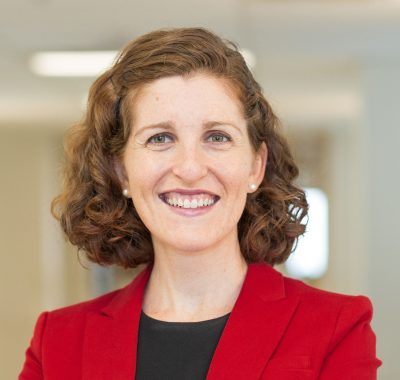 Morissa Henn, DrPH, Deputy Commissioner, NH Department of Health and Human Services
Morissa Henn, DrPH, Deputy Commissioner, NH Department of Health and Human Services
"Collaboration with Gun Owners as a Core Strategy to Address the U.S. Public Health Challenge of Suicide: Lessons from NH and UT"
April 4, 2024
Morissa Henn serves as Deputy Commissioner at the NH Department of Health and Human Services, the State’s largest executive agency, which is guided by a mission “to join communities and families in providing opportunities for residents to achieve health and independence.” In this role, she leads cross-cutting strategic efforts to integrate policy and practice, with a focus on supporting NH’s most vulnerable individuals. She also oversees Hampstead Hospital and Residential Treatment Facility, the state-run psychiatric treatment facility for youth. Morissa was recently promoted from the role of Associate Commissioner, where her portfolio included the Division for Children, Youth, and Families the Division for Behavioral Health. With roles in New York and Utah in addition to New Hampshire, Morissa has spent the past 15 years working to try and put community needs and voices at the center of health and human service system policy and design.
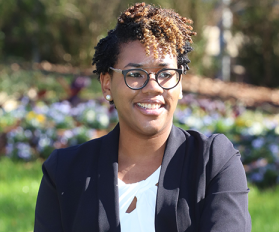 Chelsea R. Singleton, PhD, MPH
Chelsea R. Singleton, PhD, MPH
Tulane School of Public Health & Tropical Medicine
"Exploring the Nutritional & Health Consequences of Violence in Black Communities"
April 18, 2024
Dr. Chelsea Singleton is a nutritional epidemiologist whose research examines the impact healthy food access has on food purchasing behavior, dietary intake, and chronic disease risk. The overarching goal of her research is to document and dismantle nutritional inequities affecting low-income populations and people of color in the U.S. Her recent work has primarily focused on describing the mechanisms by which structural racism and structural violence impede healthy eating in underserved communities. She has extensive experience working with nutrition assistance program participants (e.g., SNAP, WIC), and she primarily uses epidemiological, geo-spatial, and community-based participatory research methods to accomplish her research goals.
 In Recognition of Sexual Assault Awareness Month
In Recognition of Sexual Assault Awareness Month
Chiara Sabina, Ph.D. Rutgers University
"Sexual Violence among Latinas: Connections to Other Forms of Violence and the Role of Cultural Factors"
April 25, 2024
Dr. Chiara Sabina is an associate professor at the School of Social Work at Rutgers University and Associate Director of the Center for Research on Ending Violence. Her research centers on interpersonal victimization, especially intimate partner violence, sexual violence, and dating violence among Latines. Dr. Sabina employs a contextual, strengths-based perspective with respect to interpersonal violence focusing on understudied groups, the influence of cultural variables, help-seeking responses, and examination of the service-delivery system. Dr. Sabina has received grants from the Fulbright Scholar Program, National Institute of Justice, Pennsylvania Commission on Crime and Delinquency, Vision of Hope, and National Sexual Violence Resource Center to conduct her work on Latine victimization, victim needs, violence prevention, domestic violence services, and culturally-informed services. Dr. Sabina is Senior Consulting Editor for Psychology of Violence, co-Chair of the Research Advisory Board of Esperanza United, and an American Psychological Association Fellow.
Completed Lectures 2022-2023
InCHIP's Completed Lectures for the 2022-2023 Academic Year will be posted here. Watch recorded lectures on InCHIP's YouTube page.
Alyasah A. Sewell, PhD, Emory University 
"All It Takes is One Block: The Legacy of Redlining in Lethally Surveilled Neighborhoods"
September 8, 2022
Alyasah “Ali” Sewell (they/them/their) is Associate Professor of Sociology at Emory University and Founder and Director of The Race and Policing Project. Advancing quantitative approaches to racism studies, they assess empirical links between the political economy of race and racial health(care) disparities using policing and housing policy data. Published in a wide array of sociological and interdisciplinary outlets, their research garnered support and recognition from the National Institutes of Health, the Ford Foundation, the National Science Foundation, the Society for the Study of Social Problems, the Baden-Württemberg Foundation, and the Inter-University Consortium for Political and Social Research. Planned Parenthood named them, “The Future: Innovator and Visionary Who Will Transform Black Communities.” They received their Ph.D. and M.A. in Sociology from Indiana University with a minor in Social Science Research Methods and their B.A. summa cum laude in Sociology from the University of Florida with a minor in Women’s Studies.
Lisa Fucito, PhD, Yale University
"Applying Sleep Health/Wellness Technology for Alcohol Prevention in Young Adults"
September 22, 2022
Lisa Fucito, PhD, is an Associate Professor of Psychiatry and Director of the Tobacco Treatment Service Smilow Cancer Hospital at Yale-New Haven. Her program of research focuses on understanding and treating tobacco, alcohol, and cannabis use in young adult and adult populations. She is particularly interested in co-use of these substances and their co-occurrence with other risky health behaviors (e.g., deficient sleep and physical inactivity), multiple health behavior change, and technology for characterizing risk profiles and delivering interventions. Dr. Fucito utilizes various research designs and methods including clinical trials, qualitative studies, laboratory-analogue models, daily experience sampling/biosensors, and implementation science. For the past 10 years, she has investigated sleep health /wellness technology as a novel alcohol prevention strategy for young adults.
M3EWB Talk @ InCHIP Lecture Series: Dacher Keltner, PhD, UC Berkeley
"Emotional Well-Being: A New Frontier?"
September 29, 2022
Co-Director of the Greater Good Science Center
Historically, researchers have concentrated on the intrapersonal characteristics and functions of emotion. My own studies have focused on the social functions of emotion, arguing that emotions enable individuals to respond adaptively to the problems and opportunities that define human social living. Based on this approach to emotion, I have documented the appeasement functions of embarrassment, the commitment enhancing properties of love and desire, and how awe motivates attachment to leaders and principles that transcend the self.
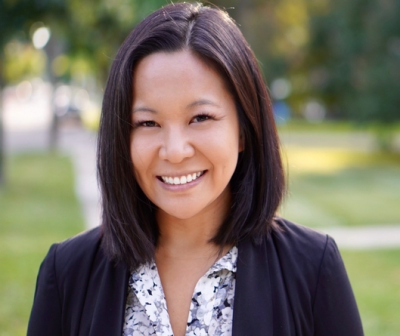 *This event was not recorded*
*This event was not recorded*
In Recognition of World Mental Health Day (10/10)
Sasha Zhou, PhD, Wayne State University
"Mental Health and Wellbeing in Higher Education: Trends, Challenges, and Opportunities"
October 13, 2022 | 12:30 - 1:30 PM
Dr. Zhou is an Assistant Professor in the Department of Public Health at Wayne State's CLAS. Her research uses mixed methods to understand and address the mental health needs of emerging adults and college student populations with particular focus on underserved populations, including students of color, international students, and sexual and gender minorities. Dr. Zhou’s broader research portfolio combines varied methodological approaches to identify the mechanisms that perpetuate mental health disparities, including in-depth qualitative work and large-scale epidemiological surveys. Dr. Zhou is also a co-investigator of the Healthy Minds Network, a research-to-practice network dedicated to improving the mental and emotional wellbeing of young people through innovative, multidisciplinary scholarship. She received her Ph.D. in Health Services Organization and Policy at the University of Michigan School of Public Health, where she was a Center for Research on Ethnicity, Culture, and Health (CRECH) Scholar.
 Amruta Nori-Sarma, PhD, Boston University School of Public Health
Amruta Nori-Sarma, PhD, Boston University School of Public Health
"Climate Change Impacts on Physical and Mental Health in the U.S."
October 27, 2022
Amruta Nori-Sarma is an Assistant Professor in the Environmental Health Department at Boston University School of Public Health, where she studies the relationship between environmental exposures associated with climate change and health outcomes in vulnerable communities. Her previous work has examined the impact of heat waves and air pollution on health in vulnerable communities in India, South Korea, and across the US. Her current research aims to understand the impacts of interrelated extreme weather events on mental health across the US utilizing large claims datasets. She also has an interest in evaluating the success of policies put in place to reduce the health impacts of climate change.
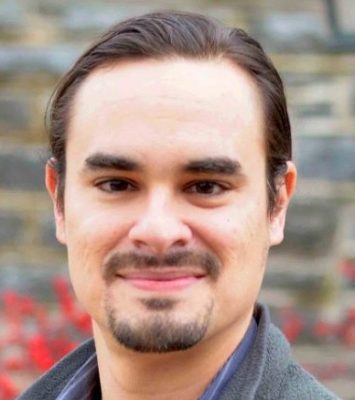 Daniel Almirall, PhD, University of Michigan
Daniel Almirall, PhD, University of Michigan
"Multi-level Adaptive Implementation Strategies (MAISYs):
Design Principles, Optimization Questions and Choosing the Right Experimental Design"
November 3, 2022
Daniel Almirall is a statistician who develops methods to form evidence-based adaptive interventions. Adaptive interventions are used to guide individualized intervention decisions for the on-going management of chronic illnesses or disorders such as drug abuse, depression, anxiety, autism, obesity, or HIV/AIDS. More recently, Almirall has been developing methods to inform the construction of optimized multilevel adaptive implementation interventions (MAISYs) using Multilevel Implementation SMARTs (MI-SMARTs). He is particularly interested in applications in mental health and substance use.
Ali Rowhani-Rahbar, MD, PhD, MPH, University of Washington
"Extreme Risk Protection Orders to Prevent Firearm-Related Harm"
November 10, 2022
Ali Rowhani-Rahbar, MD, MPH, PhD is the Bartley Dobb Professor for the Study and Prevention of Violence, Professor of Epidemiology, Adjunct Professor of Pediatrics, and Adjunct Professor of Public Policy & Governance at the University of Washington. He evaluates social programs and public policies for their impact on multiple forms of violence with a particular emphasis on preventing firearm-related harm. His research on violence prevention has been funded by the Centers for Disease Control and Prevention, National Institutes of Health, Department of Justice, Arnold Ventures, National Collaborative on Gun Violence Research, Fund for a Safer Future, State of Washington, and City of Seattle. Rowhani-Rahbar serves as a member of the editorial board of Injury Prevention and as the editor of the Injury Epidemiology Section of Current Epidemiology Reports. His more than 200 peer-reviewed publications have informed public health programs and policies locally and nationally. He received his MD from Mashhad University of Medical Sciences in Iran, MPH from Yale University, and PhD from the University of Washington. He completed his postdoctoral training at Stanford University and research fellowship at the Centers for Disease Control and Prevention.
M3EWB Talk @ InCHIP Series: Shannon Suldo, PhD, University of South Florida
November 17, 2022
"Monitoring and Increasing Middle School Students’ Subjective Well-Being"
Students with the best academic, social, and physical health outcomes have both low levels of psychopathology and elevated subjective of well-being. Comprehensive school mental health services should thus assess and foster all students' complete mental health, with extra supports for students with diminished well-being or elevated psychopathology. In comparison to the number of evidence-based methods advanced to measure and treat pathology at school, there are fewer examples of how to systematically monitor and intervene to promote subjective well-being for students whose levels are diminished. This talk will focus on practical methods of (a) screening student subjective well-being in a manner similar to how schools systematically monitor other health and academic outcomes deemed important, and (b) providing a promising targeted intervention for students identified as appropriate candidates for an extra support that evokes positive emotions about the past, present, and future; increases engagement through using signature strengths; and strengthens relationships.

In Recognition of World AIDS Day
David Holtgrave, PhD, Senior Policy Analyst, Office of National Drug Control Policy
"Translational Research in HIV and Substance Use Prevention and Care"
December 1, 2022
Dr. David R. Holtgrave serves as the Assistant Director for Translational Research in the White House Office of National Drug Control Policy. Dr. Holtgrave previously served as the Dean of the University at Albany School of Public Health, where he also held the titles of State University of New York Distinguished Professor, SUNY Empire Innovations Professor, and tenured Professor of Health Policy, Management, and Behavior (he is currently on leave from the SUNY faculty while performing federal service). In addition, Dr. Holtgrave is an Adjunct Professor at the Johns Hopkins Bloomberg School of Public Health, Department of Health, Behavior & Society (a Department for which he previously served as the Founding Chair). Dr. Holtgrave’s three-decade career in public health has also included senior leadership positions at the US Centers for Disease Control and Prevention, Emory University and Johns Hopkins University, as well as serving as Vice-Chair of the Presidential Advisory Council on HIV/AIDS during President Obama's administration. Dr. Holtgrave has conducted highly cited, rigorous research designed to inform important and timely public health policy and program questions. Dr. Holtgrave has taught research methodology to graduate students and delivered an award-winning course on “Translating Science into Public Health Programs” at both Emory and Johns Hopkins. Dr. Holtgrave’s work on substance use has included the publication of economic evaluations of sterile syringe service programs; cost analysis of HIV-related services for persons who inject drugs; examinations of the linkages between substance use and HIV treatment adherence among homeless persons living with HIV; use of national substance use related data sets to estimate HIV risk levels in the US; study of the prevalence of tobacco use and HIV status among persons who inject drugs; and cost-utility analyses of smoking cessation and prevention programs. A common theme throughout his work is fostering a multi-directional dialogue between program managers, policy makers, and applied researchers to support the translation of science into population-level impact and maximization of health equity.
Rita Charon, MD, PhD, Columbia University
Topic: The Clinical Arts and Literary Sciences of Narrative Medicine
January 26, 2023
Rita Charon is a general internist and literary scholar who originated the field of narrative medicine. She is the Bernard Schoenberg Professor of Social Medicine, the founding chair of the Department of Medical Humanities and Ethics, and Professor of Medicine at the Columbia University Vagelos College of Physicians & Surgeons. She serves as the Executive Director of Columbia Narrative Medicine. She completed the MD at Harvard and the Ph.D. in English at Columbia, concentrating on the works of Henry James. Her research investigates narrative medicine training, reflective practice, health care justice, and health care team effectiveness and has been supported by the NIH, the NEH, the Josiah Macy, Jr. Foundation, and many other private foundations. She was selected by the NEH to deliver the Jefferson Lecture in 2018, the highest academic distinction awarded by the Endowment. She has authored, co-authored, or co-edited four books on narrative medicine. She lectures and teaches internationally on narrative medicine and is widely published in leading medical and literary journals.
Lawrence Yang, PhD, New York University
"Stigma of Health Conditions in the Global Context: Applying the 'What Matters Most' Approach to Mental Illness, HIV and Cancer Stigma"
February 9, 2023
Dr. Yang will present on his program of research in stigma and global mental health to reduce health inequities. Dr. Yang will speak about the concept of “what matters most”, or “personhood” as defined in local groups, to elucidate new ways to understand, measure, and intervene against stigma in marginalized communities both locally and globally. He will highlight key projects that have used this novel conceptual formulation on the interrelationship of culture and stigma: i) his investigation of how stigma impacts undocumented Chinese immigrants with psychosis in New York City, funded by an NIMH K-award, and ii) his current application of this concept via efforts to reduce HIV-related stigma among pregnant mothers living with HIV in Botswana. In this latter project, Dr. Yang will illustrate use of this theoretical framework to identify how beneficial healthcare policies, when implemented in the context of Botswana, yielded unintended structural consequences that ostracize women with HIV from “what matters most” in their daily lives. This work informed NIMH-funded R21 and R01 interventions to counter culturally-salient aspects of stigma that impede anti-retroviral treatment adherence in Botswana among women living with HIV. Dr. Yang will also conclude with applications of the “what matters most” to cancer stigma. To conclude, Dr. Yang will present new advances in the utilization of the “what matters most” concept to address intersectional forms of stigma, promote equity, and improve global health for marginalized communities worldwide.
 Cassondra Marshall, DrPH, MPH, UC Berkeley School of Public Health
Cassondra Marshall, DrPH, MPH, UC Berkeley School of Public Health
"Improving Family Planning Care for Patients with
Type 2 Diabetes and Hypertension"
March 9, 2023
Dr. Marshall is an Assistant Professor in Residence in the Maternal, Child and Adolescent Health program at UC Berkeley School of Public Health. Prior to joining the faculty at UC Berkeley, Dr. Marshall was a Postdoctoral Fellow at Kaiser Permanente Northern California Division of Research and received training in delivery science research. Dr. Marshall also previously worked as a research fellow in the Division of Reproductive Health at the Centers for Disease Control and Prevention. She has expertise in patient-centered contraceptive care and has conducted studies on women’s contraceptive attribute preferences and method choice, contraceptive decision support tools, and cost sharing and contraceptive adherence. The goal of her research program is to promote reproductive and maternal health equity by developing and implementing patient-centered interventions and care delivery models that meet the needs of and improve the health of underserved women. Dr. Marshall’s current research focuses on health care delivery strategies to improve contraceptive and preconception care to women of reproductive age with diabetes and other chronic medical conditions.
Jeffrey Proulx, PhD, Brown University
"Using Culture as the Vehicle to Emotional Well-being: Results from the IndigenousMIND Project"
March 23, 2023
Dr. Proulx’s work focuses on the development of mindfulness programs in underserved communities and how these programs may be protective for health in those communities. His efforts bridge Native American and African-American traditional contemplative and healing practices and mainstream mindfulness practices and how mindfulness affects resilience and well-being across a person's developmental trajectory. Dr. Proulx’s work includes studying changes in physiological markers, such as cortisol or blood sugar levels, their relationship to stress and how responses to stress earlier in life may affect health later in life. Stress in minority communities is also influenced by historical and cultural traumas and his work is designed to address the loss of culture and traditions by relying on community input to assimilate community strengths and traditions that are already “mindful” into the mindfulness intervention. The goals of these interventions reflect the distinct cultures of the people he works with and affect health disparities in conditions such as diabetes and dementia. Dr. Proulx is recognized as a developmental health psychologist and his work integrates other disciplines including public health, medicine, molecular biology, and lifecourse sociology.
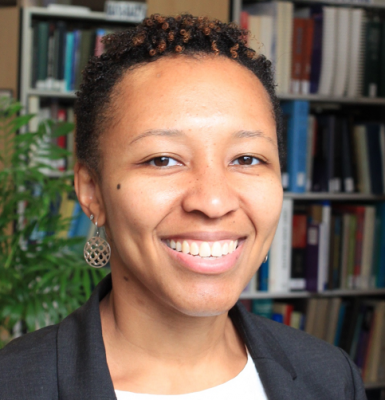 Stephanie Fitzpatrick, PhD, Northwell Health
Stephanie Fitzpatrick, PhD, Northwell Health
"Implementing Evidence-Based Interventions for Obesity and Diabetes in Clinical Care Settings"
April 6, 2023
Dr. Fitzpatrick is an Associate Professor in the Institute of Health System Science and Feinstein Institutes for Medical Research at Northwell Health. Her background is in clinical health psychology and behavioral medicine. Dr. Fitzpatrick has over a decade of experience developing, implementing, and evaluating behavioral interventions for obesity and chronic disease prevention and management in clinical and community-based settings. Her work particularly focuses on strategies to combine behavioral and social health interventions to address social needs and promote health equity. She has served as the Pl or Co-I on several NIH and PCORl-funded grants. Her most recent work, funded by the National Institute of Diabetes and Digestive and Kidney Diseases (NIDDK), included a natural experiment with a mixed methods approach to evaluate the implementation of the Diabetes Prevention Program in a large, integrated health system as well as Bridge to Health/ Puente a la Salud, a randomized trial to test the effectiveness of a combined behavioral and social health intervention led by community health workers to improve diabetes management and related outcomes among a racial, ethnic, and socioeconomic marginalized patient population. Dr. Fitzpatrick is the Director of Research, Evaluation, and Strategic Implementation for the ADA-recognized DECIDE diabetes self-management support program. She also currently serves on the Oregon Health Authority's Metrics and Scoring Committee, determining statewide population health quality measures, and serves on the boards for Society of Behavioral Medicine and Society for Health Psychology.
Timothy Schmutte, PsyD, Yale School of Medicine
"Suicide Prevention Among Older Adults"
April 20, 2023
I am a clinical psychologist and mental health services researcher with a longstanding interest in older adults and suicide prevention. My current research seeks to improve the quality of care for persons with serious mental illness and the aging population with a focus on suicide prevention. I am conducting a NIMH-funded study using Medicare data to examine the service use patterns, predictors, and outcomes of older adults treated for acute suicide risk in hospitals. I am also co-leading a NIA-funded analysis of Medicare claims to conduct the first US cohort study on the risk and protective factors for all-cause mortality, suicide, and self-harm during the early course of Alzheimer’s disease and related dementias. I am also a Co-Investigator on a project that is developing and pilot testing a peer-based intervention for Veterans with high suicide risk.
Some of my prior mental health services use research has focused on frequent psychiatric inpatient use and perceived barriers to healthcare among adults with serious mental illness. I have also published in the area of the interface between recovery, evidence-based practice, and wellness with a focus on sleep quality and active self-management programs for chronic illnesses.
Completed Lectures 2021-2022
InCHIP's Completed Lectures for the 2021-2022 Academic Year will be posted here. Watch recorded lectures on InCHIP's YouTube page.
Completed Lectures
Katrina M. Walsemann, Ph.D., MPH, University of Maryland
"Education in the Jim Crow South and Racial Inequities in Cognitive Functioning among Older Adults"
September 16, 2021 | 12:30 - 1:30 PM
Dr. Walsemann is the Roger C. Lipitz Chair in Health Policy and associate professor in the School of Public Policy at the University of Maryland, College Park, and a faculty associate at the Maryland Population Research Center. She received her Ph.D. and MPH from the University of Michigan’s School of Public Health and completed a National Institute of Aging (NIA) post-doctoral fellowship at the University of Michigan’s Population Studies Center. Dr. Walsemann is a population health scientist with a particular focus on how the U.S. education system shapes individuals’ physical and mental health, independent from and in relation to other structural factors such as race/ethnicity, gender, and social class. She has published extensively on how early school environments affect health and health behavior across the life course as well as how student debt influences the psychosocial health of young adults and their aging parents. Fundamental to her research is an understanding of the historical and contemporary social policies that can create, reduce, or eliminate social inequities in population health. Her current projects examine the role of state and local educational contexts on cognitive impairment and dementia in older adulthood. The first project, funded by an Alzheimer’s Association (AARG-NTF-20-684252), aims to determine if variation in the timing of state-level school desegregation efforts explain Black-White disparities in cognitive impairment among older adults who grew up in the U.S. South. The second project, funded by the NIA (1R01AG067536-01), examines if educational attainment has differential effects on the risk for cognitive impairment and dementia when education is attained under more (or less) advantaged educational contexts.
Co-sponsored by: Collaboratory on School and Child Health
In Recognition of World Mental Health Day (Oct. 10)
Jessica Fish, Ph.D., University of Maryland
"Future Direction in Understanding and
Addressing Mental Health among LGBTQ Youth"
October 7, 2021 | 12:30 – 1:30pm
Today’s LGBTQ youth come of age at a time of dynamic social and political change concerning LGBTQ rights and visibility yet remain vulnerable to compromised mental health. Despite advances, there remain critical gaps in large-scale evidence-based prevention and intervention programs designed to support the positive development and mental health of LGBTQ youth. To spur advances in research and translation, I propose six distinct but interrelated considerations to developing future research and (ultimately) programs to address LGBTQ youth mental health: (1) framing LGBTQ health disparities in a life course perspective; (2) expanding notions of mental health; (3) attending to the complexity of youth’s context; (4) acknowledging heterogeneity; (5) leveraging community resources; and (6) fostering team science approaches for inquiry and application. By addressing these issues, we will ultimately provide new and innovative strategies for supporting the positive development and wellbeing of LGBTQ young people.
Co-Sponsored by UConn's Rainbow Center
Matthew Miller, MD, ScD, MPH, Northeastern University; Harvard University
"Firearms & Suicide: Is Intent All That Matters?"
October 21, 2021 | 12:30 – 1:30pm
Dr. Miller is Professor of Health Sciences and Epidemiology at Northeastern University, Adjunct Professor of Epidemiology at the Harvard School of Public Health, and Co-Director of the Harvard Injury Control Research Center. Dr. Miller is an expert in injury and violence prevention. His research encompasses intentional and unintentional injury, with an emphasis of firearm related violence and suicide prevention that focuses on nature of the agent of injury and the contextual aspects of the physical and social environment that can be modified to prevent death and reduce injury severity without necessarily affecting underlying behavior. In addition to empirical work in injury prevention, Dr. Miller’s scholarship includes pharmacoepidemiology and work on the fundamental and often unrecognized tension between research and therapy in clinical trials. Dr. Miller is Assistant Editor of the journal Injury Epidemiology and a recipient of the Excellence in Science Award from the American Public Health Association. Dr. Miller teaches research methods at Northeastern.
Co-Sponsored by: Gun Violence Prevention Research Interest Group
Vincent Guilamo-Ramos, PhD, MPH, LCSW, RN, ANP-BC,
PMHNP-BC, AAHIVS, FAAN, Duke University
"Developing Efficacious Parent-Based Interventions to Reduce Adolescent Sexual & Reproductive Health Disparities and Promote Sexual Health"
November 4, 2021 | 12:30 – 1:30pm
Vincent Guilamo-Ramos, PhD, MPH, LCSW, RN, ANP-BC, PMHNP-BC, AAHIVS, FAAN, is Dean and Professor, Duke University School of Nursing and Vice Chancellor for Nursing Affairs, Duke University. He is the founding director of the Center for Latino Adolescent and Family Health (CLAFH) at Duke University. Dr. Guilamo-Ramos is a nurse practitioner dually licensed in primary care (ANP-BC) and psychiatric-mental health nursing (PMHNP-BC) and he is credentialed as an HIV Specialist (AAHIVS) by the American Academy of HIV Medicine. Widely regarded as an expert in adolescent and young adult sexual and reproductive health promotion, Dr. Guilamo-Ramos’ research has been funded externally for two decades by the NIH, CDC, HRSA, and various federal agencies. His research focuses on the role of families in promoting adolescent and young adult health among Latinos and in other underserved communities, with a special focus on preventing HIV/AIDS, sexually transmitted infections, and improving care outcomes for youth receiving HIV prevention and care services. He has published extensively in leading scientific journals and his research and scholarship has led to widespread coverage in well-known media sources. Dr. Guilamo-Ramos currently serves as a member of the Presidential Advisory Council on HIV/AIDS (PACHA), the HHS Panel on Antiretroviral Guidelines for Adults and Adolescents, the CDC/HRSA Advisory Committee on HIV, Viral Hepatitis and STD Prevention and Treatment. He also serves on the Latino Commission on AIDS Board of Directors, the Power to Decide Board of Directors, and the Ending the HIV Epidemic Working Group of the HIV Medicine Association.
Timothy Caulfield, BSc, LL.B., LL.M., University of Alberta
**This Event Was Not Recorded**
Topic: Science Miscommunication
November 18, 2021 | 12:30 – 1:30pm
Timothy Caulfield is a Canada Research Chair in Health Law and Policy, a Professor in the Faculty of Law and the School of Public Health, and Research Director of the Health Law Institute at the University of Alberta. His interdisciplinary research on topics like stem cells, genetics, research ethics, the public representations of science and health policy issues has allowed him to publish over 350 academic articles. He has won numerous academic and writing awards and is a Fellow of the Royal Society of Canada and the Canadian Academy of Health Sciences. He contributes frequently to the popular press and is the author of two national bestsellers: The Cure for Everything: Untangling the Twisted Messages about Health, Fitness and Happiness (Penguin 2012) and Is Gwyneth Paltrow Wrong About Everything?: When Celebrity Culture and Science Clash (Penguin 2015). His most recent book is The Vaccination Picture (Penguin, 2017). Caulfield is also the host and co-producer of the award winning documentary TV show, A User’s Guide to Cheating Death, which has been shown in over 60 countries and is currently streaming on Netflix.
In Recognition of World AIDS Day (Dec. 1)
Marya Gwadz, Ph.D., New York University
"'There's Not That Many Places That You Can Feel Human': Addressing the Challenges of Long-term HIV Survivorship Using the Multiphase Optimization Strategy to Create Cost-Effective Interventions"
December 2, 2021 | 12:30 – 1:30pm
Marya Gwadz is Associate Dean for Research, Professor, and Director of the Intervention Innovations Team Lab (IIT-Lab) at NYU Silver. She also serves as an Associate Director in the Transdisciplinary Research Methods Core in the NIDA-funded Center for Drug Use and HIV Research (CDUHR) at NYU School of Global Public Health. The main focus of Dr. Gwadz's research is the development and evaluation of potent, innovative, and culturally salient social/behavioral interventions to address racial/ethnic, socioeconomic, and gender inequity in health. Her work with vulnerable adolescent and adult populations spans three decades and focuses on populations such as persons with substance use problems, sexual and gender minorities, heterosexuals in high-risk contexts, populations with high rates of criminal justice involvement, runaway/homeless youth, and people of color living with HIV from low socioeconomic status backgrounds. Dr. Gwadz's program of research has been continually funded by the NIH since 2000.
Crystal Park, Ph.D., University of Connecticut
"Emotional Well-Being in the Context of Mind-Body Practices"
December 9, 2021 | 12:30 - 1:30pm
Crystal L. Park, Ph.D., is Professor of Clinical Psychology at the University of Connecticut. Her research focuses on multiple aspects of coping, including the roles of religious/spiritual resources, the phenomenon of stress-related growth, and the making of meaning in the context of traumatic events and life-threatening illnesses. Her yoga-related research focuses on the mechanisms through which yoga may affect health and wellbeing and reduce stress, particularly through its fostering of healthier emotion regulation. She is currently co-principal investigator of NIH-funded studies of mechanisms of action through which yoga helps low back pain and alcohol misuse, and is also co-principal investigator of an NIH-funded research network, Mind-Body Measures and Mechanisms of Emotional Wellbeing. At UConn, she maintains an active research lab of graduate and undergraduate students, and teaches health psychology at both the graduate and undergraduate levels.

Sierra Carter, Ph.D., Georgia State University
"Racial Trauma and Racial Health Disparities among Black American Populations: Examining Pathways to Healing, Collective Action, & Liberation"
February 3, 2022 | 12:30 – 1:30pm
My primary area of research focuses on racial health disparities and investigating how psychosocial and contextual stressors can affect both mental and physical health outcomes for underrepresented populations, with an emphasis on African American populations. I have a long-standing interest in the ways that health disparities in African American populations arise and are maintained by psychological, physiological, and contextual/social processes. A common theme throughout much of my work has been examining how racial discrimination, as an acute and chronic stressor, effects development and exacerbation of chronic illnesses and stress-related disorders across the life course. I integrate clinical, physiological, and biobehavioral measurement in my research to aid in improved identification of mechanisms that can be targeted in prevention and treatment efforts to reduce racial health disparities.
 Antwi Akom, Ph.D., University of California, San Francisco (Medical School) & San Francisco State University (Department of Africana Studies/College of Ethnic Studies)
Antwi Akom, Ph.D., University of California, San Francisco (Medical School) & San Francisco State University (Department of Africana Studies/College of Ethnic Studies)
***This event was not recorded***
"Transforming Racial Health Disparities and Structural Determinants Through Community Informatics and Digital Health Equity"
February 17, 2022 | 12:30 – 1:30pm
Antwi Akom Ph.D. is a Distinguished Professor and Founding Director of the Social Innovation and Universal Opportunity lab. The SOUL lab is the first joint research lab between the University of California, San Francisco Medical School and San Francisco State University. Prof Akom is nationally recognized for innovating for heath equity by developing Neighborhood Informatics - which integrate Community-Drive Data and Patient Centered Data with Big Data and predictive analytics in ways that make communities smarter, more equitable, just and sustainable. Named as one of the world’s top innovators at President Obama 's Frontiers Conference (2016)-- and awarded the Robert Woods Johnson Foundation Pioneer award (2019)--what makes Dr. Akom’s work unique is his ability to combine real-time data, location-based data, and health informatics with cutting-edge technology in order to transform racial health disparities and achieve new standards of accessibility, scalability, sustainability, health equity, and opportunity for all. Professor Akom's work enables hospitals, health care providers, community clinics, grassroots orgs, CBOs, Fortune 500 companies, policy-makers, designers, and everyday people to create more just, equitable, diverse, and inclusive places and spaces with the world's most vulnerable populations.
Co-sponsored by:
Tiffany L. Carson, PhD, MPH, Moffitt Cancer Center
"Weighing in on Stress: Exploring the Role of Psychological Factors in Chronic Diseases among Black Women"
March 3, 2022 | 12:30 – 1:30pm
Black women experience a disproportionate burden of obesity and obesity-associated chronic diseases including type 2 diabetes and some cancers. Black women also experience less weight loss than White women and men when attempting weight loss through a variety of modalities. Reasons for this are not fully understood and warrant additional investigation. Chronic psychological stress, which is reported to be higher among Black women compared to White women and men, is hypothesized as a contributor to weight gain and suboptimal weight loss among Black women. This presentation will review the triple threat of obesity, diabetes, and cancer among Black women; present what is known about chronic stress and weight management; and examine stress management as a tool to enhance weight loss outcomes among Black women with obesity and elevated stress levels who participate in behavioral weight loss interventions.
Genevieve Dunton, PhD, MPH, University of Southern California
"Using Intensive Longitudinal Data to Understand Physical Activity Maintenance in the Era of COVID-19"
March 24, 2022 | 12:30 – 1:30pm
Genevieve Dunton, PhD, MPH is a Professor of Population and Public Health Sciences and Psychology, and Chief of the Division of Health Behavior Research at the University of Southern California. She earned a doctorate in Health Psychology from the University of California, Irvine and a Master of Public Health from the University of Southern California. Dr. Dunton received post-doctoral training in physical activity, nutrition, and cancer prevention from the Cancer Prevention Fellowship Program at the National Cancer Institute. Dr. Dunton´s research examines health behaviors related to chronic disease risk in children and adults, with a focus on physical activity and nutrition. Dr. Dunton is the Director of the USC REACH (Real-Time Eating Activity and Children’s Health) lab, whose goals are to develop, test, and apply real-time data capture methodologies and applications, using smartphones and wearable sensors, to better understand the effects of psychological, social, and environmental factors on eating and physical activity. She is the PI on numerous studies funded by the National Institutes of Health and the American Cancer Society, author of over 190 peer-reviewed publications, and past Chair of the American Public Health Association Physical Activity Section. Dr. Dunton is also past Chair of the National Physical Activity Plan Public Health Sector Committee and past member of the National Academy of Sciences Committee on the Implementation of Physical Activity Surveillance Strategies. See http://reach.usc.edu/
Shannon N. Zenk, PhD, MPH, RN, FAAN
Director, National Institute of Nursing Research
"Nursing Research: Meeting Challenges with Innovation, Inclusion, & Impact"
April 7, 2022 | 12:30 – 1:30pm
Shannon N. Zenk, PhD, MPH, RN, FAAN is Director of the National Institute of Nursing Research (NINR). She joined NINR in September 2020, following a 14-year career as a faculty member at the University of Illinois Chicago (UIC) College of Nursing and Institute for Health Research and Policy. Her background is in nursing and public health. Dr. Zenk’s own research focuses on community environments as a social determinant of health and health inequities. She and her team conducted pioneering research on food deserts in the United States. Dr. Zenk was inducted into the International Nurse Researcher Hall of Fame in 2019.


M3EWB Talk @ InCHIP Lecture Series
John M. Salsman, PhD, Wake Forest School of Medicine
Topic: Emotional Well-Being
April 21, 2022 |12:30 – 1:30pm
I am the Director of Clinical Research in Adolescent and Young Adult (AYA) Oncology and the Co-Leader of the Cancer Prevention and Control Program at the Wake Forest Baptist Comprehensive Cancer Center. I am a health psychologist by training, and my work focuses on maximizing the health-related quality of life of AYAs with cancer both during and after treatment. I do this primarily through three ways: improving measurement of patient-centered outcomes in order to “give patients a voice,” identifying factors that promote resilience and thriving, and implementing behavioral interventions to foster psychological wellbeing. Among my NIH-funded research, I have received a K07 (CA158008) and two R01s (CA218398 & CA242849). The K07 provided focused training in state-of-the-art approaches to measurement science and led to the development of patient-reported outcome measures of psychological well-being for the NIH Patient Reported Outcomes Measurement Information System (PROMIS). As part of R01 CA218398, I am continuing my measurement science work by developing and validating new measures of health-related quality of life among AYAs with cancer. Lastly, for R01 CA242849, I am conducting a randomized controlled trial of a web-based, positive emotions intervention among AYA cancer survivors to determine the optimal (i.e., efficacious) components to improve well-being.
Sponsors
The 2025-2026 InCHIP Lecture Series is made possible with generous support from:
